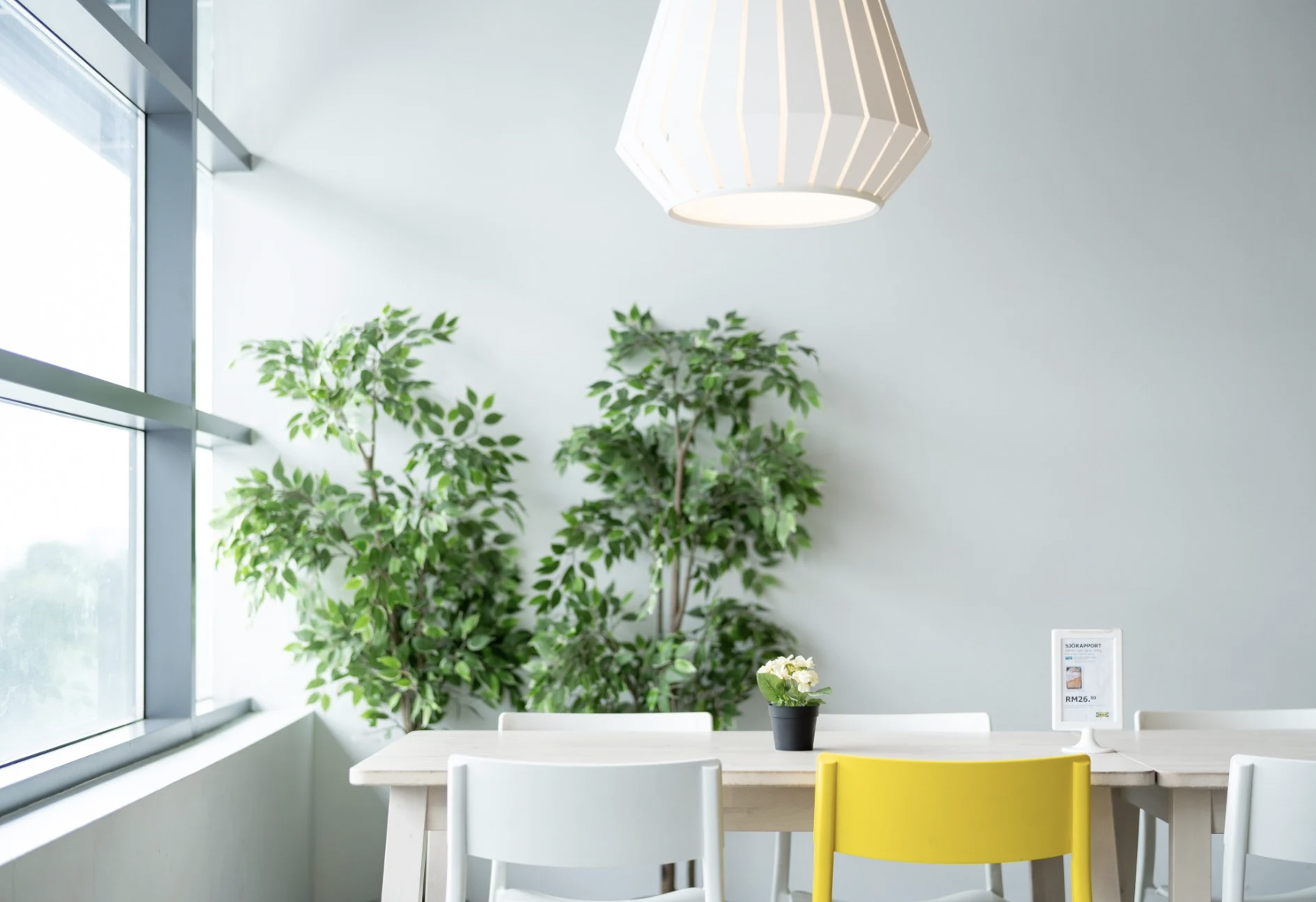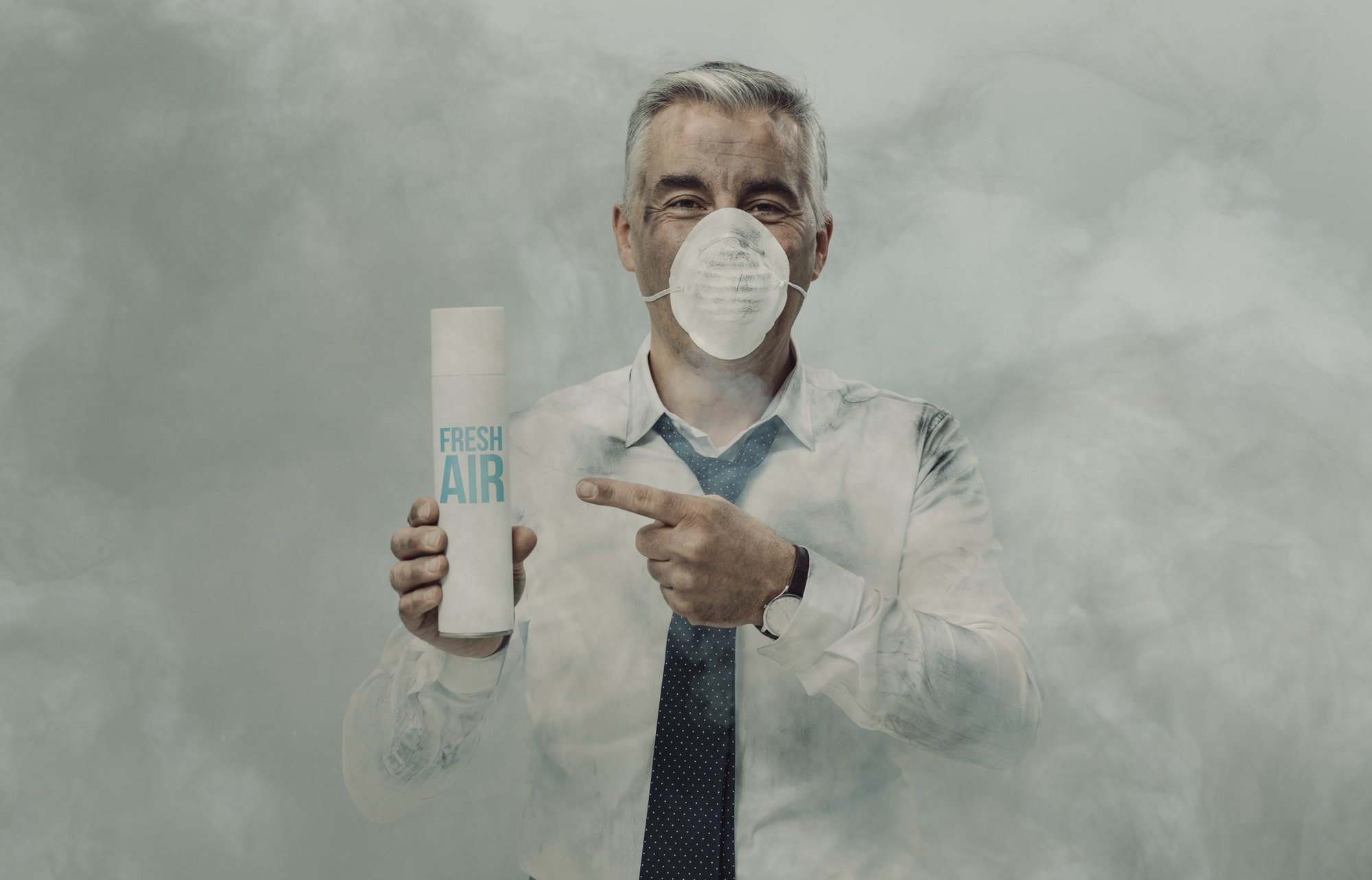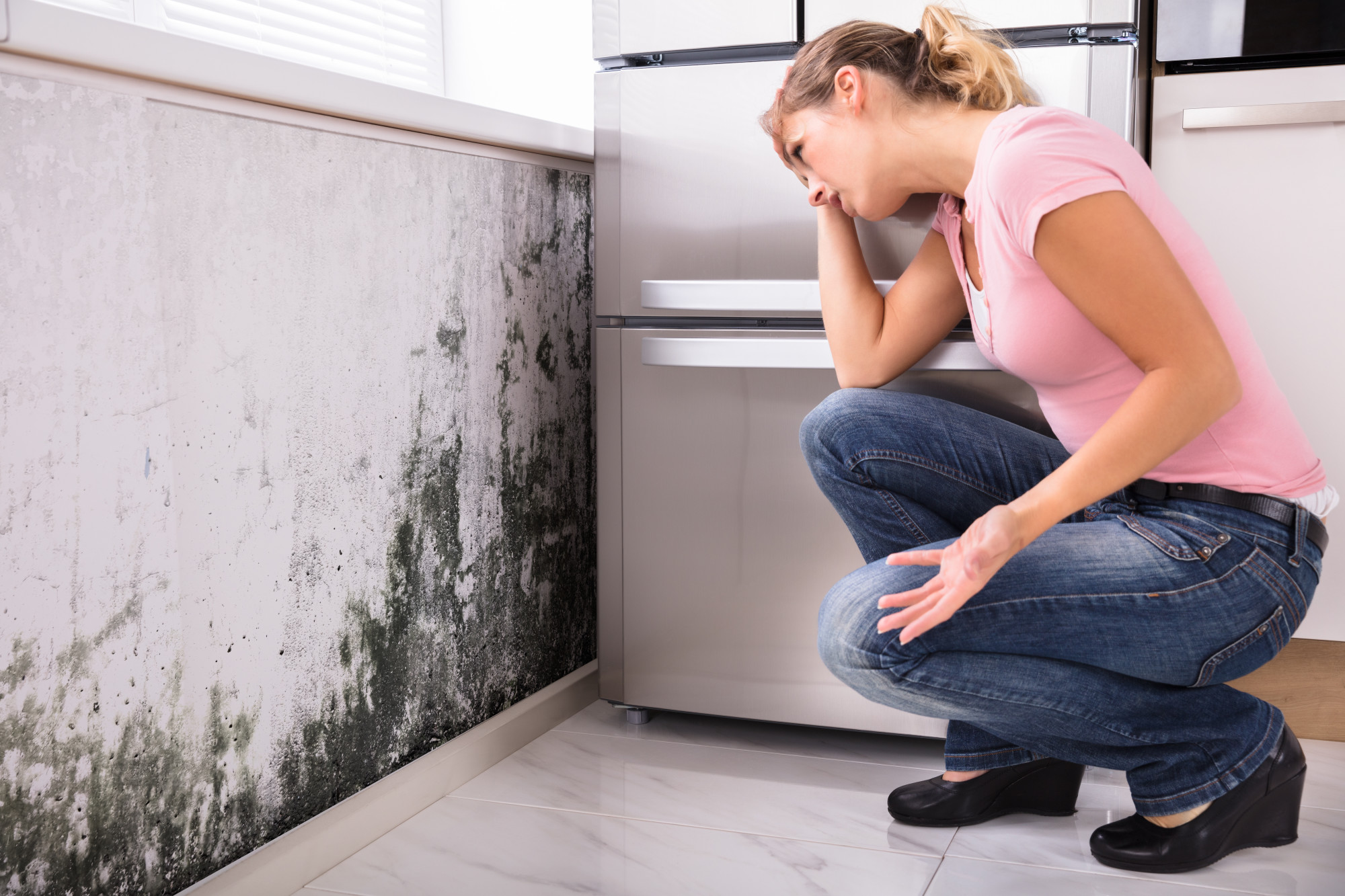How Your Bonita Springs, FL Home Can Benefit From a Whole House Air Purifier
Imagine stepping into your Bonita Springs, FL home, where the air feels as fresh and rejuvenating as a morning stroll by the beach. A whole house air purifier can make this a reality, taking your home air quality improvement to exceptional levels.
No more worrying about allergens, dust, or pollutants. Instead, breathe easier and live healthier, knowing your air is consistently pure throughout every room. Discover how investing in a whole house air purifier can transform your living space into a sanctuary of clean air and unmatched comfort.
What Is a Whole House Air Purifier?
A whole house air purifier is an air purification system integrated into your home's HVAC system. Unlike portable air purifiers that only clean the air in a single room, whole house air purifiers work to filter and purify the air throughout your entire home. They are designed to remove a wide range of contaminants, including dust, pollen, pet dander, mold spores, and other airborne particles.
How Do Air Purification Systems Work?
Whole house air purifiers use advanced filtration systems to capture and eliminate pollutants from the air. They typically employ a combination of pre-filters, HEPA filters, activated carbon filters, and UV light technology to achieve comprehensive air purification. Here's a step-by-step look at how they operate:
Air Intake: The HVAC system draws air from your home into the ductwork.
Pre-Filtration: Larger particles like dust and hair are captured by a pre-filter.
HEPA Filtration: The air then passes through a HEPA filter, which captures smaller particles such as pollen, pet dander, and mold spores.
Activated Carbon Filtration: An activated carbon filter absorbs odors, chemicals, and volatile organic compounds (VOCs).
UV Light Treatment: Finally, the air is exposed to UV light, which kills bacteria, viruses, and other microorganisms before the purified air is circulated back into your home.
Benefits of a Whole House Air Purifier
The primary advantage of installing a whole house air purifier is the substantial improvement in home air quality. Here are the benefits:
Comprehensive Home Air Quality Improvement
One of the primary benefits of a whole house air purifier is the significant improvement in home air quality. By continuously filtering the air throughout your entire home, these systems ensure that you and your family breathe cleaner, healthier air. This is particularly beneficial for individuals with allergies, asthma, or other respiratory conditions.
Enhanced Indoor Air Health
Improving indoor air health is crucial for maintaining overall well-being. Poor indoor air quality can lead to a range of health issues, including respiratory problems, headaches, fatigue, and even more severe conditions over time. A whole house air purifier helps mitigate these risks by effectively removing harmful pollutants from the air.
Removal of Odors and VOCs
Odors from cooking, pets, cleaning products, and other sources can linger in your home, affecting the overall air quality. Whole house air purifiers equipped with activated carbon filters can effectively remove these odors, leaving your home smelling fresh and clean.
Protection Against Airborne Illnesses
Whole house air purifiers with UV light technology offer an added layer of protection by killing bacteria, viruses, and other pathogens that circulate through your home's air. This is especially important during flu season or when there are outbreaks of respiratory illnesses.
Reduction of Dust and Pet Dander
Dust and pet dander are common indoor pollutants that can trigger allergies and respiratory issues. Whole house air purifiers effectively capture and remove these particles, reducing their presence in your home and minimizing allergy symptoms.
Why Bonita Springs Homes Need Residential Air Purifiers
The unique climate and environmental factors in Bonita Springs, FL, make whole house air purifiers especially beneficial for homeowners in the area. Here's why you need them:
High Humidity and Airborne Contaminants
Bonita Springs, FL, experiences high humidity levels, which can exacerbate indoor air quality issues. High humidity promotes the growth of mold, mildew, and dust mites, all of which can negatively impact indoor air health. A whole house air purifier helps control these contaminants, creating a healthier indoor environment.
Coastal Environment and Allergens
Living near the coast means dealing with unique allergens such as sea salt, sand, and pollen from coastal vegetation. These particles can easily enter your home and degrade indoor air quality. Whole house air purifiers are equipped to handle these specific challenges, ensuring that the air you breathe is as clean as possible.
Year-Round Comfort
In Bonita Springs, FL, maintaining a comfortable indoor environment is essential year-round. Whole house air purifiers work in conjunction with your HVAC system to provide consistent air quality improvement regardless of the season. Whether it's the hot and humid summer months or the cooler winter season, your home's air will remain clean.
Installation and Maintenance of Whole House Air Purifiers
Installing a whole house air purifier requires expertise and knowledge of HVAC systems. It's essential to hire a certified HVAC professional to ensure the system is installed correctly and operates efficiently. Professional installation involves:
- Assessment: A thorough assessment of your home's HVAC system and air quality needs.
- Integration: Proper integration of the air purifier with your existing HVAC system.
- Testing: Comprehensive testing to ensure the system functions as intended.
Routine Maintenance
While whole house air purifiers are low maintenance compared to portable units, they still require periodic upkeep to maintain optimal performance. Here are some maintenance tips:
- Filter Replacement: Replace filters as recommended by the manufacturer. This is typically every 6-12 months, depending on usage and air quality.
- System Inspection: Schedule annual inspections by a certified HVAC technician to check for any issues and ensure the system is operating efficiently.
- Cleaning: Clean the pre-filters and check for any buildup of dust or debris in the system.
Contact Romeo Air Conditioning for Your Whole House Air Purifier Needs
At Romeo Air Conditioning, we are a family-owned, full-service HVAC company providing certified, experienced, and friendly AC repair and installation services for Bonita Springs, FL. With our expertise and commitment to customer satisfaction, we can help you choose and install the perfect whole house filtration systems.
To get a whole house air purifier and improve your home's indoor air quality, call us at 239-237-1518, or reach out to us on our website.
Benefits of Installing an Air Filtration System in Estero, FL
Is the air you breathe good for your health?
Estero, Florida is famous for its vibrant community, majestic landscapes, and warm climate. From locals to tourists, people stay in the village because it offers a high quality of life. However, despite its good air quality index, Estero experiences high humidity levels, averaging around 75%.
Installing an air filtration system is one way to combat the heat. Filters trap and remove contaminants, improving air quality and reducing humidity. It can also improve health and enhance comfort.
Are you curious how a whole home air purifier can benefit you? In this article, we uncover the benefits of a home air purifier.
1. Reduce Allergens
As summer settles in, moisture may start to form on ceilings, walls, and any closed areas. This creates a breeding ground for allergens, pollen, mold, and other irritants. With the presence of allergens, you can put your health at risk.
It can trigger allergic rhinitis, often with itchy eyes, runny nose, and sneezing. For individuals with asthma, poor and humid air can amplify their condition. It can lead to frequent attacks and respiratory distress.
This is where a home air purification system comes in, eliminating pollutants by trapping airborne particles. It removes them from the indoor air, reducing the concentration of allergens. With a whole house air filter, you can create a cleaner and safer living space.
2. Boost Respiratory Health
Aside from asthma, allergens can exacerbate other respiratory conditions. This may include sinusitis, bronchitis, and chronic obstructive pulmonary disease.
Clean air is essential for a healthy respiratory system. Air filtration systems become handy as they help remove harmful particles. With them, you can filter out volatile organic compounds.
Volatile Organic Compounds are airborne chemicals from paints, cleaners, and furniture. A humid climate increases off-gassing, which produces VOCs. Inhaling these compounds can result in headaches and dizziness.
Some whole-house air purifiers have specialized filters, allowing them to target strong pollutants like VOCs. This promotes better air quality, leading to a safer home for you and your family.
3. Improves Sleep
Sleep repairs and regenerates the body to support your physical and mental health. Moreover, it strengthens the immune system, cognitive performance, and well-being. Poor air quality can disrupt your rest by causing congestion, sneezing, and coughing.
If you want to ensure a good night's rest, install an air filtration system. It can improve sleep quality by removing pollutants. This enables you to get quality sleep without any respiratory discomfort.
Good sleep can improve your mood, enhance cognitive function, and boost productivity. For home health improvement, get an air filtration system.
4. Adapts to Local Climate
Estero, Florida, is within the tropical climate zone. Residents frequently experience warm temperatures, high humidity, and abundant rainfall. Unfortunately, this also means that it can be difficult to maintain good indoor air quality.
You do not need to worry if you have a whole home air purifier. Air purifier benefits include adaptability to the local climate.
There are air filtration systems designed for humid climates. It can filter out pollutants like a regular system and also control indoor humidity levels.
With this dual functionality, you can ensure your home remains comfortable and healthy. You can reduce allergens, boost respiratory health, and improve sleep. By adapting to the local climate, they can prevent issues that may cause structural damage.
5. Enhances Comfort
Home air purifiers are great for indoor air quality improvement. Comfort in a personal space goes beyond temperature control. For many, it also means having clean and fresh air. However, this is a struggle for people who live in humid climates.
Frequent humidity allows moisture to form in closed spaces. If there is insufficient airflow, contaminated air will remain in your home. Moisture can trap them and emit a strong, pungent foul smell.
This causes unpleasant odors from cooking, smoke, or cleaning products to linger. Installing a home air purifier can help eliminate foul smells.
Air filtration systems neutralize these musty scents, enhancing the comfort of your home. Further, reducing airborne dust and debris can help keep your home cleaner. This reduces the need for frequent dusting and cleaning.
6. Good for the Environment
Did you know you can contribute to a more sustainable environment with an air purifier?
By improving indoor air quality, the system scraps the need for chemical products. These include air fresheners and cleaning products that can release harmful VOCs.
These VOCs do not only affect our comfort and health. They can also end up in the environment, contaminating our soil and water. By eliminating chemical products, you can leave a more positive impact on our delicate ecosystem.
Advanced air filtration systems are more energy-efficient. With this, you can consume less power while maintaining optimal performance. Installing green technology helps you save money as it lowers your bills.
7. Protect Your Home's HVAC System
Installing an air filtration system can prolong the lifespan of your HVAC system.
From dust to dirt, airborne particles accumulate in your HVAC system every time you use it. Failure to clean makes it work harder as it struggles to produce air with the pollutants covering it. This can lead to malfunctions or breakdowns over time.
Filtering out these contaminants will ensure the optimal function of your HVAC system. This can also enhance its performance and reduce its maintenance costs.
Regular maintenance and cleaning systems equate to fewer repairs and replacements. As a result, it saves you money in the long run.
Enjoy the Benefits of a Whole Home Air Purifier Today
Poor air quality puts your health at risk. If you fail to address the problem, it can trigger allergies, lead to respiratory conditions, or spread airborne illnesses. A whole home air purifier can protect you from these, especially with the high humidity.
From repair and preventative maintenance to custom filtration systems, Romeo Air Conditioning, Inc. offers 24/7 Air Conditioning services in Estero, Florida. Our certified HVAC technicians average around 25 years of experience with home heating and cooling systems.
Drop us a line and let us know how we can serve you.
How Indoor Air Quality Can Affect Your Health in Marco Island, FL
According to statistics, Marco Island, Florida's air quality is worse than that of 84% of other Florida cities.
Does that mean it's better to stay indoors, then?
Not so fast. Air pollution isn't just a risk you face outside, especially if your home has poor indoor air quality (IAQ).
But how exactly can exposure to poor IAQ affect you? And is there anything you can do to improve it?
Keep reading, as we've shared the answers in this guide.
The Health Effects of Poor Indoor Air Quality
Poor indoor air quality refers to indoor air with high levels of pollutants. The latter includes the following:
- Biological contaminants like mold, mildew, bacteria, and viruses
- Carbon monoxide (CO)
- Nitrogen dioxide (NO2)
- Indoor particulate matter (PM)
- Volatile organic compounds (VOCs)
- Toxic compounds like asbestos, radon, and formaldehyde
Both short- and long-term exposure to these pollutants can lead to acute and chronic health effects. Here are just some of them.
Skin and Eye Irritation
Airborne contaminants, such as molds, PM, and chemicals, can irritate the eyes and skin. Acute effects may include itchiness and redness. Longer-term exposure may increase one's risk for skin diseases like acne, dermatitis, and eczema.
Respiratory Diseases
Indoor air pollution can irritate the respiratory system. Short-term exposure to air pollutants can cause the following:
- Shortness of breath
- Coughing
- Sneezing
- Runny nose
- Wheezing
- Chest pain
- Allergy and asthma attacks
- Respiratory infections
Long-term exposure to poor IAQ can also increase one's risk for lung cancer.
CO Poisoning
Carbon monoxide is an invisible, odorless, and tasteless gas that can contribute to toxic air inside your home.
Your indoor air may contain carbon monoxide if you use a poorly vented and ill-maintained gas furnace. Other sources are kerosene heaters, gas ranges, and charcoal or wood-burning appliances.
CO poisoning can cause headaches, nausea, dizziness, vomiting, weakness, confusion, and chest pain. At high enough levels, it can cause comatose and even be deadly.
Heart Disease
Indoor air with high PM and nitrogen oxide levels can increase your risk of heart disease. These pollutants can cause blood vessels to age early and may contribute to a hastened calcium buildup in the coronary artery.
The problem is that a blocked coronary artery restricts blood flow to the heart and blood vessels. That can increase one's risk for debilitating, even deadly, heart attacks and strokes.
Cancer
In the United States, cigarette smoking is the leading cause of lung cancer. Next is radon, followed by second-hand smoke.
So, if someone in your family smokes cigarettes inside the house, the toxins in its smoke can mix with indoor air. It then becomes a source of second-hand smoke.
Radon, a naturally occurring gas, may also enter your home through cracks, gaps, and holes. It may then build up in the indoor air, lowering its quality and putting you and your loved ones at risk of lung cancer.
Cognitive Effects
Researchers discovered a link between PM and NO2 exposure and cognitive impairment. They associate these pollutants with poor memory, attention performance, and executive function. They also found that impaired cognition was more apparent in people who stayed in places with poor ventilation for prolonged periods.
Other Possible Consequences of Poor IAQ
Over time, poor IAQ may put your home at risk of property damage due to increased mold levels. These microorganisms feed on and break down organic matter like wood and paper. Given enough time, they can cause severe structural damage to your home.
Indoor air pollution also increases your HVAC system's maintenance needs. For instance, it can clog up your HVAC filters faster and cause foul or musty smells in your AC or furnace. As a result, you'd have to change or wash your filters and clean your HVAC system more frequently.
How to Improve IAQ in Your Marco Island Home
The first step to improving IAQ in your home is to determine its sources of indoor air pollutants. Doing so allows you to take the appropriate steps to control or eliminate them. Proper ventilation and specific technologies can further improve your IAQ.
Source Identification and Control
Some of the most common sources of indoor air pollutants are water leaks caused by faulty AC units and plumbing systems. They contribute to poor IAQ by promoting mold and mildew growth. So, if you have a leaking air conditioner or plumbing component, have it fixed by a professional ASAP.
As mentioned above, fuel-burning appliances are other typical sources of indoor air pollution. You can control their emissions with regular maintenance and by venting their gases correctly.
You should also minimize your use of air fresheners and glass cleaners. These products may contain harmful chemicals and VOCs that can lower your IAQ. Instead of using these, go for non-toxic and eco-friendly cleaning solutions.
Proper Ventilation
Ventilation involves intentionally introducing outdoor air into an indoor space. It can help boost IAQ by diluting and displacing indoor air pollutants. Some strategies include opening doors and windows and using exhaust fans.
You can ventilate your home on days when Marco Island has low outdoor pollution levels. You can check this online via websites that track the day's Air Quality Index (AQI).
Technologies for Better IAQ
You can control indoor humidity levels with a dehumidifier, a device that sucks moisture out of the air. It makes your home less humid, lowering the odds of mold growth, too.
You can also boost your home's IAQ with a high-quality air purifier. Ideally, it should use a HEPA filter that can capture up to 99.7% of unwanted particles in the air.
Cleaner Air for a Healthier You
Poor indoor air quality can cause eye and skin irritations, lung problems, CO poisoning, and heart disease. So, if anyone in your family experiences the symptoms of poor IAQ, it's time to get the problem under control.
Our expert technicians at Romeo Air Conditioning, who have an average of 25 years of work experience, can help you get started. Although we're a NATE-certified Carrier FAD dealer, we service all HVAC makes and models. We also possess certifications proving our HVAC work qualifications, including IAQ assessments and improvements.
So, if you're ready to breathe easier, contact us today! We'll happily discuss how our HVAC and IAQ services can benefit your entire family.
Choosing the Right Air Purifier for Your Estero, FL Home
Humans breathe in 3,400 gallons of air a day. Children breathe in 50% more. This makes them more susceptible to lung diseases. There are several ways to increase the air quality at home. You can maintain your HVAC, clean the air ducts, vacuum, avoid chemicals, and buy welcome mats and indoor plants.
Only 27% of families who experience breathing issues from polluted air use an air purifier. It's one of the best options and could prevent up to 65% of childhood asthma and 60% of adult breathing issues.
Read on to learn how to choose the right air purifier for your home.
Consider the Type of Filtration
An air purifier works in several stages. A two-stage system uses a washable fabric filter and a replaceable filter.
The replaceable one should always be a HEPA or high-efficiency particulate air filter. It can capture 99.7% of particles in the air.
Air purifiers that use UV light may not be best for those with asthma, lung conditions, or an allergy problem. They release ozone, a known lung irritant.
Check the Ratings and Energy Star Certification
The CADR or Clean Air Delivery Rate determines how many cubic feet per minute of clean air the purifier produces at its highest speed. It's also measured for different pollutants. Look at its ratings for smoke, dust, and pollen.
The MERV rating expresses how tight the filters are. It ranges from MERV 12 to MERV 17. Look for no lower than MERV 13.
ACH or air changes per hour determines how fast it can exchange all the air in a room. A purifier with an ACH of 4 can exchange the air four times an hour or once every 15 minutes.
Look for products with the Energy Star certification. They're 25% more energy-efficient than a standard model, making them more effective and less expensive.
Measure the Room
Each air purifier is optimized for a specific room size. Measure your room to see what you'll need.
Put the purifier at a lower speed if it's meant for a smaller room. It's effective yet quieter.
Listen for the Noise Level
An air purifier is almost like a roommate who's always making noise. Make sure you can tolerate its sound. You may even need different ones for different rooms.
The noise level should be listed on the packaging or the company's website. The quietest ones range from 24-30 decibels, which is lower than a refrigerator.
Count the Cost
Cleaner air is priceless, but air purifier costs vary, so shop around for a model that fits your budget.
This includes the cost of maintenance. Think of how much you'll need to spend on replacement filters and what kind you'll need. They can cost a few dollars or up to $200 each.
A purifier can do more than improve air quality. Certain models have smart features such as:
- Integration with smart speakers or apps
- Air quality or filter change indicators
- Scheduling
- Timers
They make it easier to use the filter but also increase its cost, so consider whether or not you need them.
Indoor Air Quality
Choosing the right air purifier means researching everything about it. Look at its ratings, room size specification, noise level, and cost.
Are you looking to improve your indoor air quality in Estero, FL? Get air purifiers and filtration services from Romeo Air Conditioning, Inc. today.
5 Warning Signs You Need Indoor Air Quality Services
Do you find yourself worrying about your home's air quality? Are you having a difficult time remembering the last time your home's air was serviced? Well, you should know that poor indoor air quality can get worse than just stale air.
Poor indoor air quality can cause many negative health effects. Additionally, these can be particularly harmful to children and infants.
If you think that signs of poor indoor air quality should be ignored, think again. This guide will highlight 5 warning signs that show you need indoor air quality services.
1. Bad Smells
While it's easy to chalk up bad smells in your home to the usual suspects, this can be a sign you need indoor air quality testing.
You must take the necessary action to improve indoor air quality in your home. Otherwise, you risk these smells lingering in your home indefinitely.
2. Excessive Dust Throughout Your House
If you're one of the 20 million Americans with a dust allergy, the last thing you need is a house caked in dust.
Bad air quality in your home can cause significant amounts of dust to build up. Often, cleaning yourself won't do much good, as the dust will come back almost immediately.
3. Mold
When you're living in Florida, humidity is simply a fact of life, whether you're in Naples or Marco Island. The problem with this is that it causes numerous problems if your home doesn't have good circulation.
For example, humidity can cause and exacerbate mold growth. This will damage the integrity of your house and presents a health hazard for you and those around you.
4. Carbon Monoxide
Easily one of the most dangerous hazards that can come with poor indoor air quality is carbon monoxide.
Found in stoves and heaters, a leak of this can lead to unconsciousness and even death.
You must take every precaution available to avoid a carbon monoxide leak, as usually when you notice one it can already be too late.
5. Asbestos
Once a miracle material for home building, asbestos is now known as a deadly health hazard for homeowners.
Asbestos was originally used for its fire-resistant qualities. Yet asbestos releases fibers that when inhaled, can lead to serious health issues like lung cancer.
If you're wondering how to improve indoor air quality, asbestos is one crisis you can't ignore.
Don't Hesitate on Indoor Air Quality Services
Poor indoor air quality isn't just an inconvenience. In many cases, it can be an outright hazard. This means that the longer you put off fixing this issue, the more risk you and your family are exposed to.
If you are starting to see the signs of poor air quality in your home, then you're going to need the best of the best to deal with this issue. After all, why leave something as important as your health up to luck?
If you're searching for "indoor air quality services near me", then look no further! Romeo Air Conditioning Inc. is one of the most highly reviewed indoor air quality services in Florida, so don't be afraid to contact us!
This Is How to Improve the Air Quality in Your Home
Did you know that air pollution kills around 7 million Americans every year? While the air outside may be out of your control, you can still do a lot toward improving air quality within your house.
The last thing you want to do is let your loved ones breathe air that can be hazardous to their health.
Are you wondering what you can do about it? Keep reading to learn all about how to improve the air quality in your home.
Switch Out Your Air Filters
When it comes to clean air for homes, one thing you shouldn't neglect is your air filters. Most air filters need to be changed every month.
It's worth investing in higher-quality filters. Not only do they do a better job at filtering, but they often last longer. Aside from the AC filter, you should also get in the habit of changing the filter in your bathroom fan, your stove fan, and even your vacuum.
Be In Control of Humidity
Florida can become quite humid in the summer. Humidity can encourage mold growth, which can then pollute the air inside your home. To get improved air quality, you should have a dehumidifier installed in your home's HVAC system.
However, if you're on a budget, you can purchase portable dehumidifiers. The problem with these devices is that they are often noisy and need to be changed much more regularly.
Get a Whole-House Air Purifier
To the best air quality, you'll need to hire a professional to install a whole-house air purifier.
Not only can a whole-house purifier get rid of bad odors, but it can also eliminate dander, dust, and pollen. That way, you can be more protected from airborne allergy attacks. As if that wasn't enough, a whole-house purifier can even kill viruses, mold, bacteria, and reduce chemical emissions.
Fix Air and Water Leaks
Are you still wondering how to get clean air? There are always more strategies you can use to get the cleanest air possible.
For instance, you should double-check to make sure your doors and windows are solid and air-tight. Leaks can not only increase your AC bill, but they can also allow the air pollutants from outside to get in.
Water leaks are another hazard that can affect your home's air quality. The reason for this is that leaks can lead to mold growth. It's best to get them fixed as soon as possible.
For Indoor Air Quality Services in Naples, FL Contact Romeo Air Conditioning, Inc.
Now that you've learned all about how to improve the air quality in your home, you can make sure that you and your loved ones can thrive on pristine air.
Romeo is proud to be the best provider of air conditioning services in the Southwest Florida area, including Naples, Fort Myers, Bonita Springs, Marco Island, and Estero. From AC repair to heating replacements and more, our certified professionals are here to help.
If you have any questions about our high-quality services, feel free to contact us.
5 Ways Summer Humidity Affects Your Indoor Air Quality
Summer in Naples means sunshine, hot weather, and yes, humidity. It's not unusual for the relative humidity to reach 89 or 90 percent. It's manageable when you can cool off indoors, but when the humidity penetrates your home, it can be miserable.
Summer humidity is more than uncomfortable. It can affect both indoor air quality and your health. We'll take a closer look at the connection between high humidity and indoor air quality and give you five tips for managing both.
1. What Is Humidity?
OK. We know you know humidity causes that sticky, hot weather in the summer, especially here in Florida. The technical explanation is that humidity is vaporized water in the air. The more water that's absorbed into the air, the higher the humidity level.
Fun fact: The American Society of Heating, Refrigerating, and Air Conditioning Engineers (ASHRAE) recommends you keep the humidity level in your home less than 65 percent. It's more comfortable, and it maintains a higher level of air quality.
2. How Does Summer Humidity Affect Indoor Air Quality?
The biggest issue caused by high humidity indoors is mold. Mold is actually a fungus, and it loves warm, damp air.
When the relative humidity gets above 60 percent, mold and mildew can begin to grow. The fungus can grow on a number of different surfaces including wood, drywall, and carpet. Incredibly, mold can eat away those surfaces and cause structural damage to a building.
The bigger issue for most people is the health issues mold can cause. You don't have to be allergic to mold and mildew to have trouble. Some of the most common symptoms of exposure to mold are:
- Respiratory problems
- Nasal congestion
- Burning, watery eyes
- Dry cough
- Sore throat
- Skin irritation
The simplest way to tell if your physical symptoms are caused by something inside is to leave for a period of time. If you feel better after leaving your home, that's a pretty good indication the problem is inside.
3. How Can I Tell If the Humidity Is Too High?
There are a couple of ways. One, you can buy a device called a hygrometer. It measures humidity levels indoors. You can find them in most home improvement stores or online.
The second way is cheaper but not as accurate. Fill up a glass with ice cubes and leave it on a counter in your home. Don't use a bathroom counter for this, because humidity levels in bathrooms tend to run higher.
Check on your glass after about five minutes. If you see a lot of condensation on the outside of the glass, the humidity level in your home is high.
4. What Can I Do About It?
As we said a minute ago, humidity tends to run high in bathrooms (and kitchens). If you have an exhaust fan in the bathroom, switch it on when you take a shower or bath. That will help remove moisture from the air. If you don't have exhaust fans, consider having them installed.
You might also purchase a dehumidifier for a room or for the whole house.
5. Is My Air-Conditioner to Blame?
Possibly. You should make sure your HVAC system is functioning well. (HVAC stands for Heating, Ventilation, and Cooling). Schedule an appointment with your service provider to have the unit inspected.
If you've had a problem with the humidity in your home, you might consider having the ductwork cleaned. At a minimum, change the filters regularly to maintain good airflow.
You Can Save Money Too!
There is a financial benefit to maintaining your HVAC and keeping those summer humidity levels low. If your unit isn't running well, it's not as energy efficient. That means it uses more energy to run. That costs you money.
Contact us with any questions you have about your indoor air quality. We're happy to schedule an appointment.







